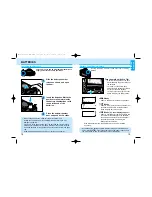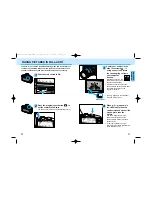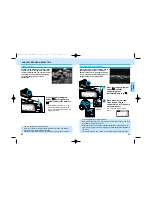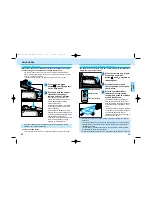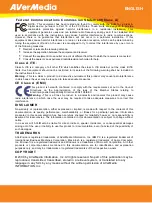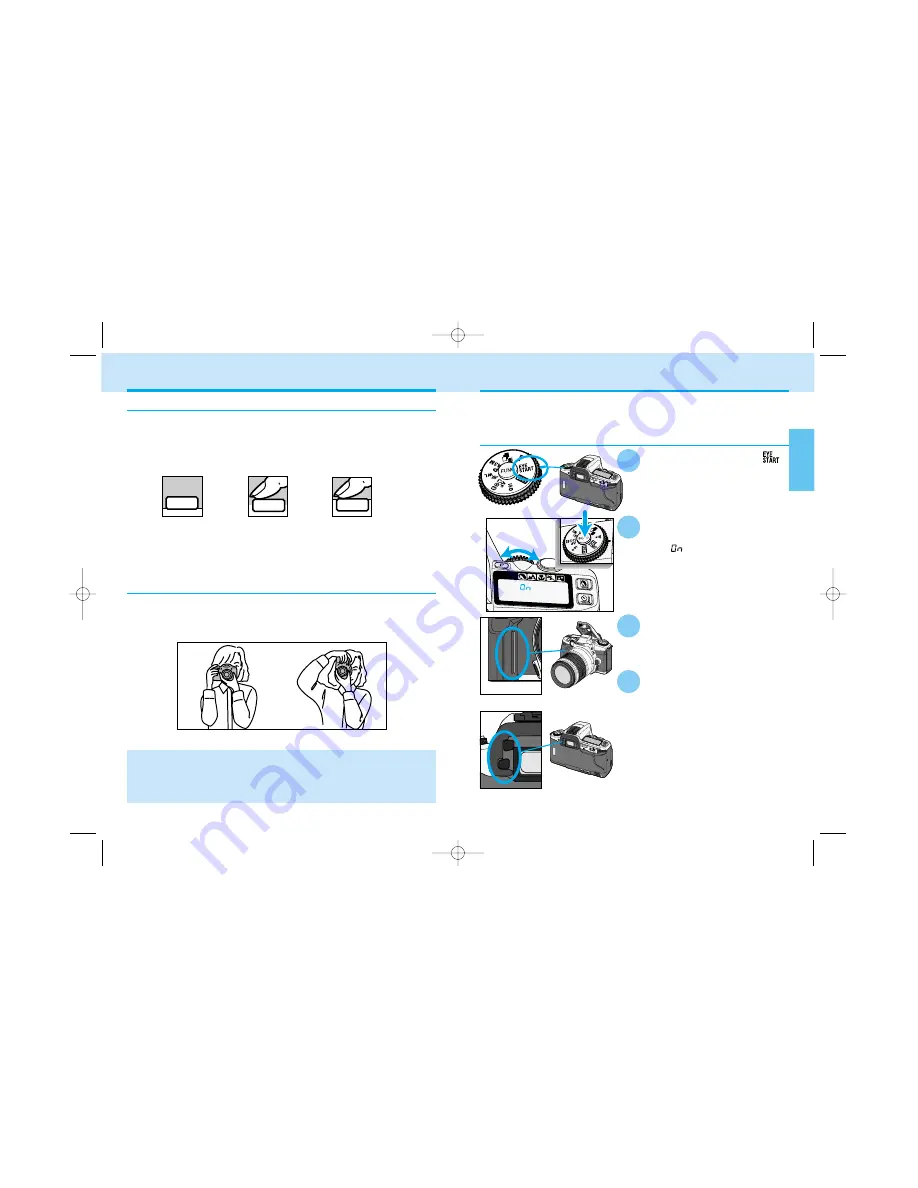
26
EYE-START
Instead the shutter-release button, the eye-start automatically activates
the camera’s focus and exposure systems when you bring the camera to
your eye. The eye-start is initially on.
When taking a picture, touch
the grip sensor to activate
the eyepiece sensors
located near the viewfinder.
Turning Eye-start ON
Turn the function dial to
.
While pressing the function
button, turn the control dial
until
appears on the
data panel. The eye-start
function is now on.
2
Grip Sensor
Eyepiece sensors
• Lean against a wall or rest your elbows on a solid surface to steady the
camera in low-light situations.
• The use of the tripod is recommended when using the camera in low-light
situations or with slow shutter speeds or telephoto lenses.
HANDLING THE CAMERA
Pressing the Shutter-release Button
Before pressing
Pressing
partway down
activates
camera
systems
Pressing
all the down
releases
the shutter
Holding the Camera
Grip the camera firmly with your right hand, while supporting the lens
with your left. Keep your elbows at your side and your feet shoulder-
width apart to hold the camera steady. Keep the camera strap around
your neck or wrist in the event you accidentally drop the camera.
Press the shutter-release button partway down to activate the camera’s
autofocus and auto-exposure systems when eye-start is off. Press the
shutter-release button all the way down to take the picture. When taking
a picture, press the shutter-release button with your index finger gently
so not the shake the camera during the exposure.
1
3
Bring the camera to your
eye and frame the subject in
the viewfinder. When an
object is detected near the
viewfinder, the camera’s
systems are activated to set
the focus and exposure.
• Autofocus and exposure systems
shut down approximately five
seconds after eyepiece or grip
sensor contact is broken.
4
27
AUT
OMA
TIC
OPERA
TION
9222-2163-11 MM-B108 (E).qxd 01.8.3 16:11 Page 26










